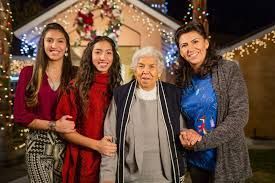IT CAN HAPPEN: SENIORS GETTING KICKED OUT OF ASSISTED LIVING

I found this on dailycaring.com and thought it real important to share with you (I copied and pasted it here for you to read). This can really happen. PLEASE don't let it happen to you or your loved one!
Terrible, but true: seniors can get kicked out of assisted living
It’s awful, but defenseless older adults are actually getting kicked out of assisted living facilities.
It’s called involuntary discharge and basically means they could be evicted with only 30 days written notice.
As a family caregiver, it’s important to understand why this could happen and how you to protect your senior from a terrible situation.
Regulations around assisted living discharge
Each state has regulations that protect assisted living residents from being kicked out for unlawful reasons.
The regulations and notice period may vary by state, but in general, there are only a handful of reasons that allow a facility to involuntarily discharge a resident.
This includes:
- Not paying the bill.
- Needing more health care or personal assistance than the facility is licensed to provide.
- Endangering the health or safety of other people.
- Breaking a rule in the resident contract (aka admission agreement).
- Closing of the facility (going out of business).
Facts you need to know about being evicted from assisted living
If your senior has been told to leave, these basics help you make sure the facility isn’t trying to retaliate against complaints or get away with something illegal.
- Facilities have to provide written notice to the resident and (if known) to a family member or legal representative.
- Facilities have to document the reasons they are discharging the resident.
- In most situations, written notice has to be given at least 30 days before the discharge date.
- Facilities can’t discharge residents who have submitted a timely application for Medicaid and are waiting to hear about their eligibility.
- Residents have the right to appeal the discharge decision with the state.
Note: Regulations may vary by state
Where to get help with an assisted living discharge
If your older adult has gotten an involuntary discharge notice, it can always be appealed. Some facilities even have an internal appeals process.
If an internal appeal process doesn’t exist or isn’t helpful, you can file an appeal with the state.
This could be a confusing process, so you might want to involve the local ombudsman. They work independently to help assisted living residents and makes sure problems with facilities get resolved.
It could also help to get a lawyer involved. They can make sure the facility isn’t trying to get around the law.
It’s great if your senior has an elder law attorney, but if they can’t afford to hire a lawyer, contact the local Legal Aid organization.
Bottom line
Sometimes, a facility is justified in telling a resident that they must leave. This usually happens when someone’s health or safety is at stake.
But in other cases, the facility may be trying to kick a resident out for an unlawful reason.
To protect your older adult, understand the rules, know that you can appeal the decision, and get additional help if needed.
Know your rights! If you think you or your loved one has been treated unfairly, remember to reach out to an ombudsman or an elder law attorney. They are there to assist you!!




